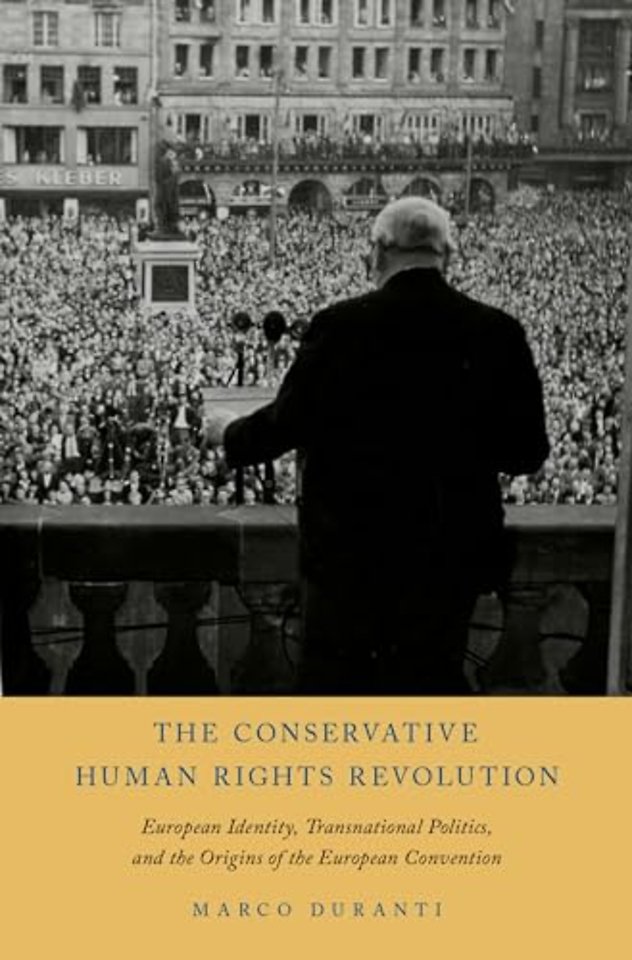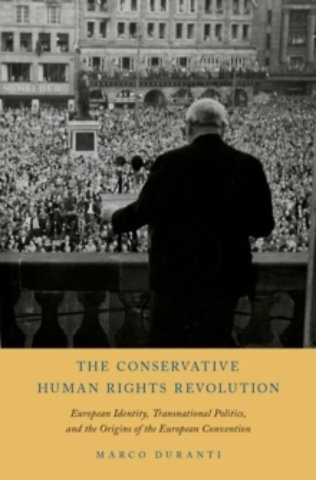



Marco Duranti, Lecturer in Modern European and International History, University of Sydney
Marco Duranti is Lecturer in Modern European and International History at the University of Sydney, where he directs the Nation Empire Globe Research Cluster.
Meer over Marco DurantiThe Conservative Human Rights Revolution
Samenvatting
The Conservative Human Rights Revolution radically reinterprets the origins of the European human rights system, arguing that its conservative inventors envisioned the European Convention on Human Rights (ECHR) not only as an instrument to contain communism and fascism in continental Europe, but also to allow them to pursue a controversial political agenda at home and abroad. Just as the Supreme Court of the United States had sought to overturn Franklin
Roosevelt's New Deal, a European Court of Human Rights was meant to constrain the ability of democratically elected governments to implement left-wing policies that conservatives believed violated their basic liberties, above all in Britain and France.
Human rights were also evoked in the service of reviving a romantic Christian vision of European identity, one that contrasted sharply with the modernizing projects of technocrats such as Jean Monnet. Rather than follow the model of the United Nations, conservatives such as Winston Churchill grounded their appeals for new human rights safeguards in an older understanding of European civilization. All told, these efforts served as a basis for reconciliation between Germany and the rest of Europe, while justifying the exclusion of communists and colonized peoples from the ambit of European human rights law.
Marco Duranti illuminates the history of internationalism and international law — from the peace conferences and world's fairs of the early twentieth century to the grand pan-European congresses of the postwar period — and elucidates Churchill's Europeanism, as well as his critical contribution to the genesis of the ECHR. Drawing on previously unpublished material from twenty archives in six countries, The Conservative Human Rights Revolution revisits the ethical foundations of European integration after WWII and offers a new perspective on the crisis in which the European Union finds itself today.
Specificaties
Inhoudsopgave
Introduction
PART ONE: Reflections on the Conservative Human Rights Revolution in Postwar Europe (1946-50)
Chapter 1: The Ethical Foundations of European Integration
Chapter 2: Human Rights and Conservative Politics
Chapter 3: Revolutions and Restorations
PART TWO: Human Rights, Memory, and the Romantic Origins of International Justice (1899-1950)
Chapter 4: The Romance of International Law
Chapter 5: Internationalism Between Nostalgia and Technocracy
Chapter 6: Churchill, Human Rights, and the European Project
Chapter 7: Postwar Reconciliation and Cold War Human Rights
PART THREE: Free-Market Conservatism, Christian Democracy, and the European Convention on Human Rights (1944-59)
Chapter 8: Neoliberal Human Rights in Postwar Britain
Chapter 9: Neomedieval Human Rights in the Shadow of Vichy
Chapter 10: Catholic Human Rights in Postwar France
Chapter 11: Rethinking the ECHR's Original Intent
Conclusion
Epilogue: A European Union Without Qualities
Notes
Bibliography
Index
Anderen die dit boek kochten, kochten ook
Net verschenen
Rubrieken
- aanbestedingsrecht
- aansprakelijkheids- en verzekeringsrecht
- accountancy
- algemeen juridisch
- arbeidsrecht
- bank- en effectenrecht
- bestuursrecht
- bouwrecht
- burgerlijk recht en procesrecht
- europees-internationaal recht
- fiscaal recht
- gezondheidsrecht
- insolventierecht
- intellectuele eigendom en ict-recht
- management
- mens en maatschappij
- milieu- en omgevingsrecht
- notarieel recht
- ondernemingsrecht
- pensioenrecht
- personen- en familierecht
- sociale zekerheidsrecht
- staatsrecht
- strafrecht en criminologie
- vastgoed- en huurrecht
- vreemdelingenrecht





